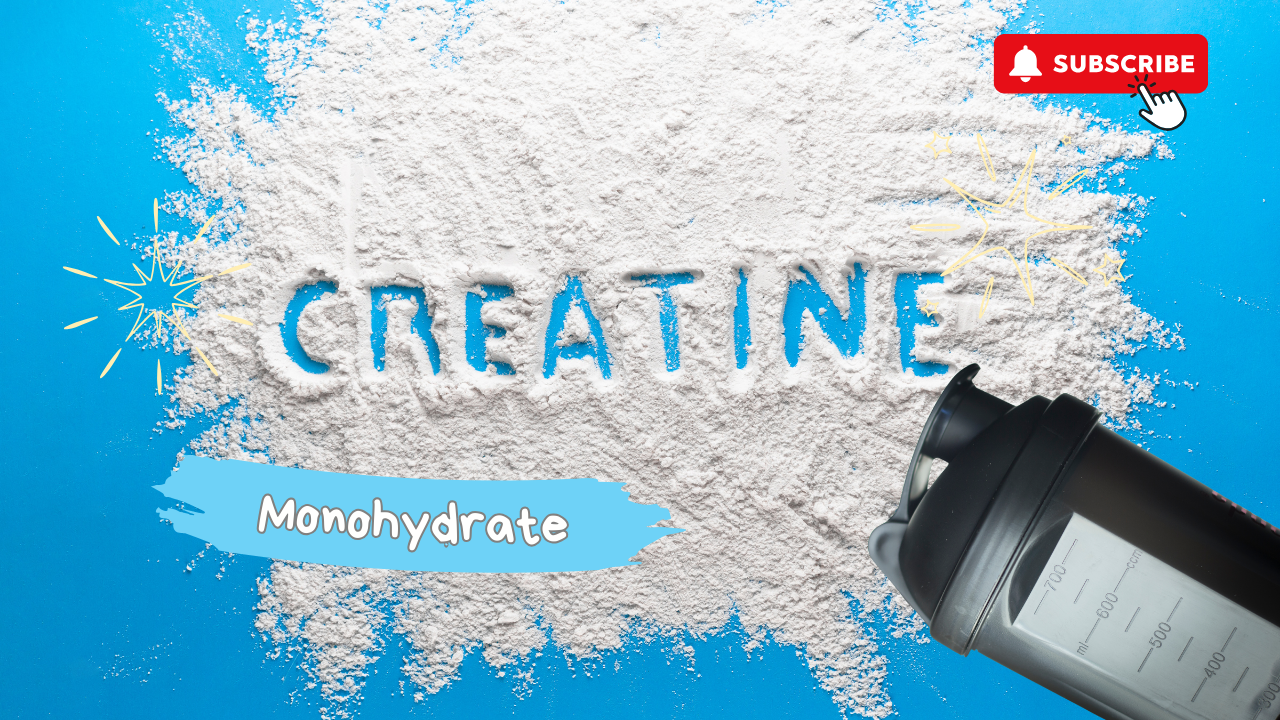You know creatine as the go-to supplement for gym rats and athletes chasing gains, but what if I told you it’s not just for your biceps? In fact, emerging research shows that creatine plays a massive role in brain health, from boosting cognitive function to regulating mood and even helping with depression.
Sounds like bro-science? Think again. Let’s break down the science behind why creatine is an absolute game-changer for your brain.
1. Creatine and Brain Energy Production
Your brain is an energy-hungry monster. Despite making up only about 2% of your body weight, it guzzles roughly 20% of your total energy. Every thought, memory, or movement requires adenosine triphosphate (ATP), your body’s energy currency.
How Creatine Helps:
- ATP Regeneration: Creatine acts as a buffer in the phosphocreatine system, rapidly replenishing ATP levels. More ATP = sharper thinking, better concentration, and improved cognitive endurance.
- Neuronal Protection: Without enough ATP, brain cells struggle to function properly, leading to fatigue, brain fog, and even cell death. Creatine ensures neurons don’t run out of fuel, protecting against oxidative stress and neurodegeneration.
In simple terms? More creatine = more energy for your brain to fire on all cylinders.
2. Neurotransmitters, Mood, and Depression
If you’ve ever felt sluggish, demotivated, or just downright miserable, your brain’s neurotransmitters are likely out of whack. Depression is linked to imbalances in serotonin, dopamine, and glutamate, which all play a role in mood, motivation, and emotional resilience.
Creatine’s Role in Neurotransmitter Balance:
- Serotonin & Dopamine Support: These neurotransmitters don’t just magically appear in your brain—they require ATP to be synthesized and transported. By improving ATP availability, creatine helps sustain higher levels of serotonin (for mood stability) and dopamine (for motivation and reward processing).
- Regulating Glutamate: Glutamate is an excitatory neurotransmitter that, when left unchecked, can cause excitotoxicity, essentially frying your neurons. Creatine helps regulate this cycle, preventing excess glutamate from causing damage linked to depression and anxiety.
So, if you’re constantly feeling down, lacking motivation, or struggling with focus, creatine could be the missing piece of the puzzle.
3. The Anti-Inflammatory & Antioxidant Effects
Chronic inflammation and oxidative stress are major players in depression, brain fog, and cognitive decline. If your brain is constantly inflamed, it’s like trying to think through a thick fog—it’s slow, frustrating, and exhausting.
Creatine to the Rescue:
- Reduces Inflammation: Studies show creatine lowers pro-inflammatory cytokines like TNF-α and IL-6, which are elevated in people with depression and neurodegenerative diseases.
- Protects Mitochondria: Your mitochondria (aka your cellular power plants) play a massive role in mental health. Dysfunctional mitochondria = low energy, poor focus, and higher susceptibility to mental illness. Creatine enhances mitochondrial efficiency, reducing oxidative stress and improving overall brain resilience.
4. Neuroplasticity & Brain-Derived Neurotrophic Factor (BDNF)
Neuroplasticity is your brain’s ability to adapt, rewire, and grow—essential for learning, memory, and recovering from stress. BDNF (Brain-Derived Neurotrophic Factor) is the key player in this process.
Creatine’s Neuroplasticity Boost:
- Low BDNF levels are consistently linked to depression, anxiety, and cognitive decline.
- Creatine has been shown to increase BDNF expression, supporting neuronal growth, plasticity, and resilience.
In short, creatine helps keep your brain flexible and adaptable, reducing the risk of mental health struggles and age-related cognitive decline.
5. Clinical Evidence: Creatine & Depression Treatment
Now, let’s talk real-world results. Multiple studies suggest creatine supplementation can significantly improve symptoms of depression, especially when paired with traditional treatments.
What the Research Shows:
- Creatine enhances the effects of antidepressants, leading to faster and greater symptom relief.
- Creatine is particularly effective for treatment-resistant depression, meaning people who don’t respond well to standard medication may benefit from adding creatine to their regimen.
- Women may benefit even more from creatine due to its interaction with estrogen, which influences energy metabolism in the brain.
This isn’t just some fitness industry hype, there’s solid science backing creatine’s role in mental health.
Final Thoughts: Should You Take Creatine for Brain Health?
Absolutely. The evidence is clear, creatine isn’t just for muscle growth; it’s a powerful nootropic with benefits for cognitive function, mental clarity, and emotional well-being.
If you’re serious about enhancing brain performance, reducing stress, and improving your mood, supplementing with 3-5g of creatine monohydrate daily is a no-brainer.


Share:
Does Sugar Really Cause Inflammation?